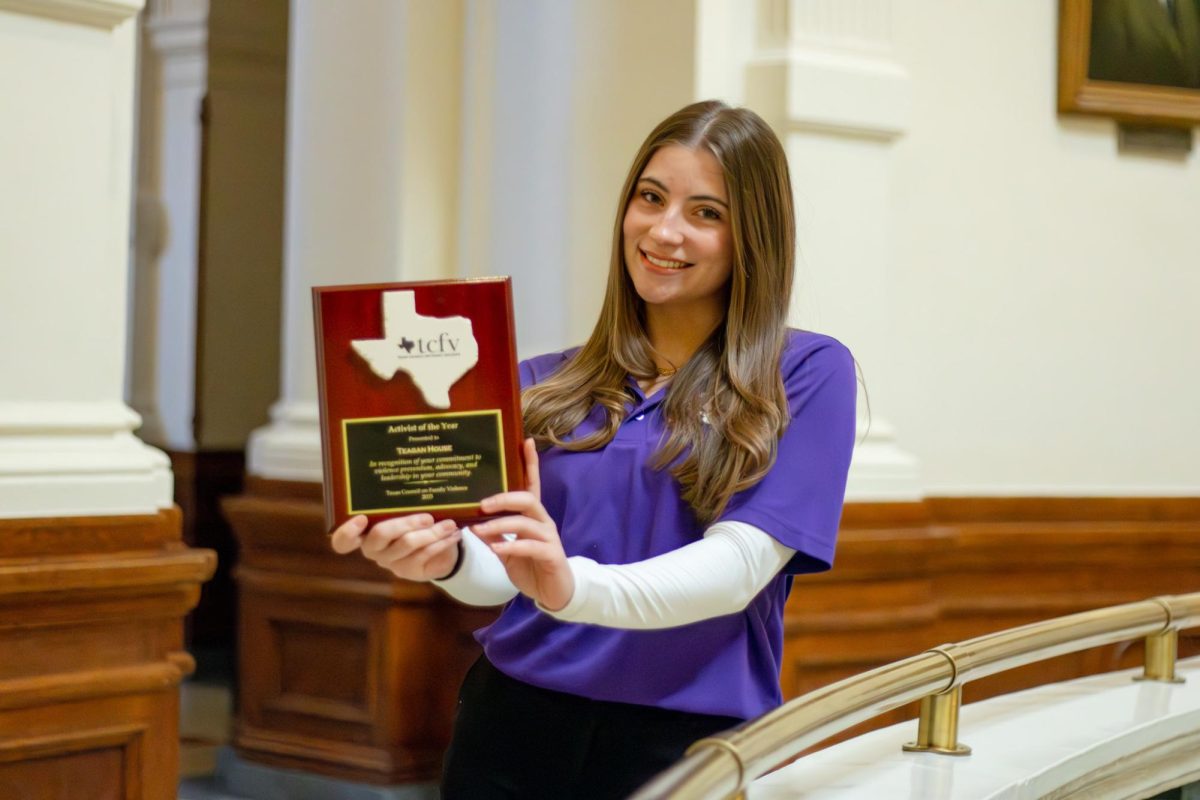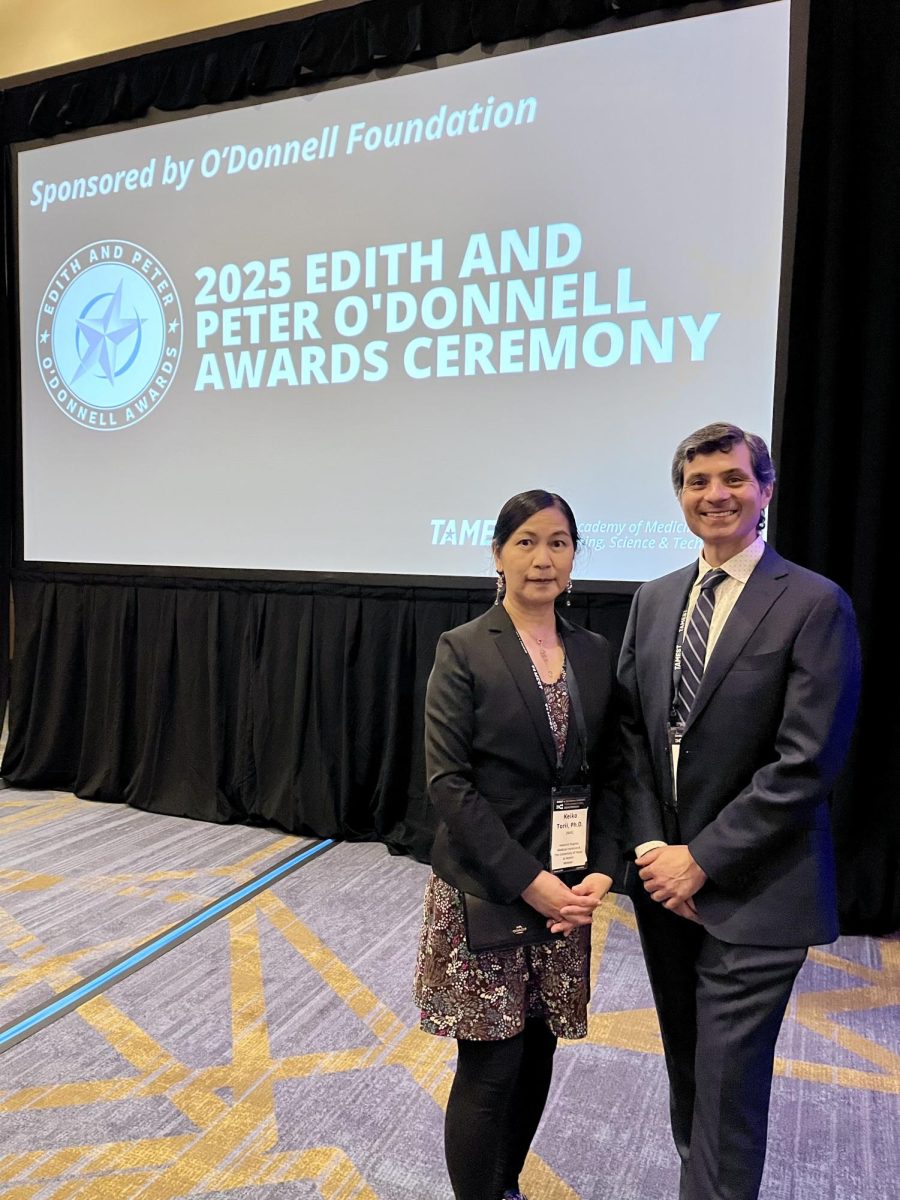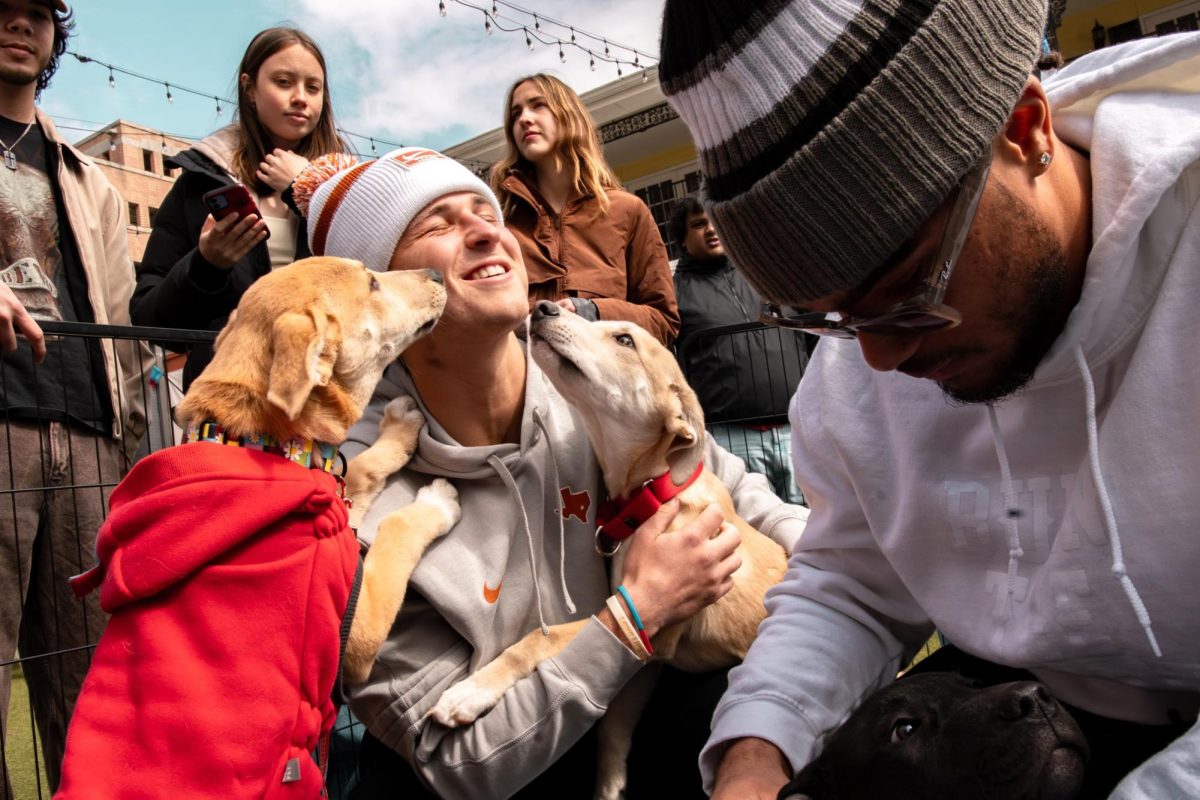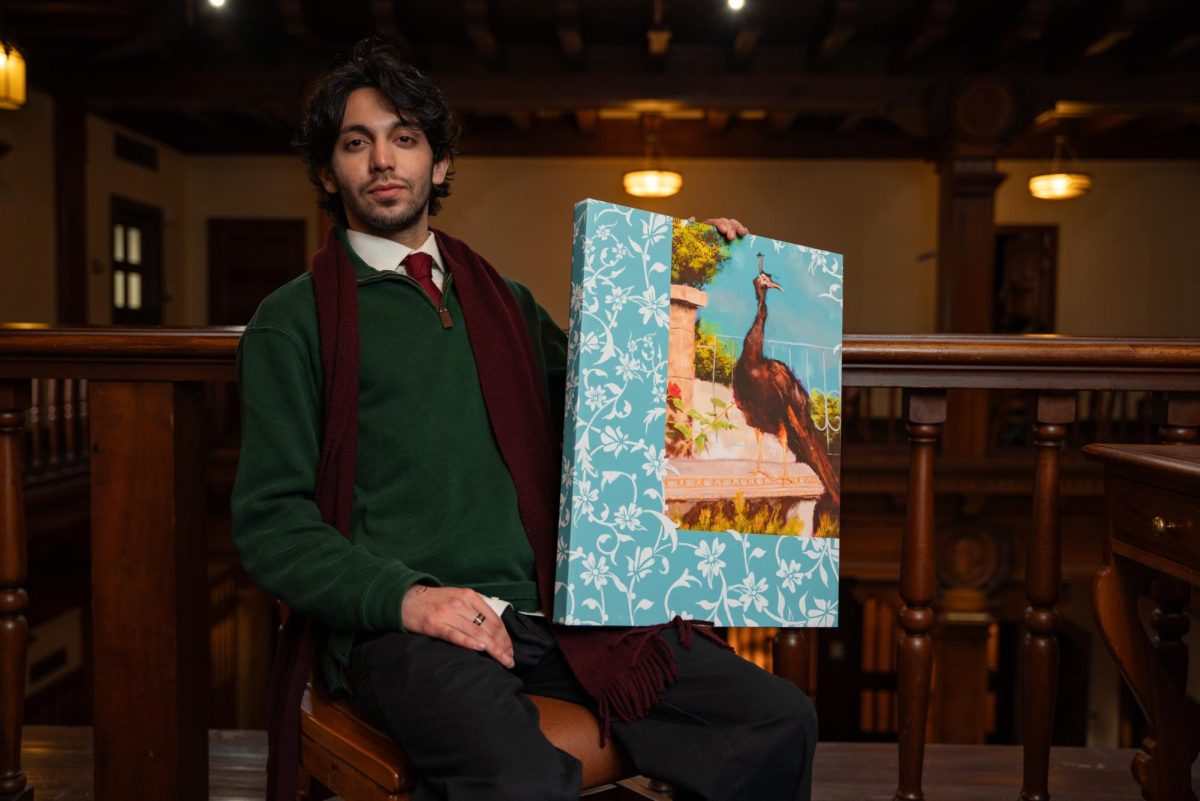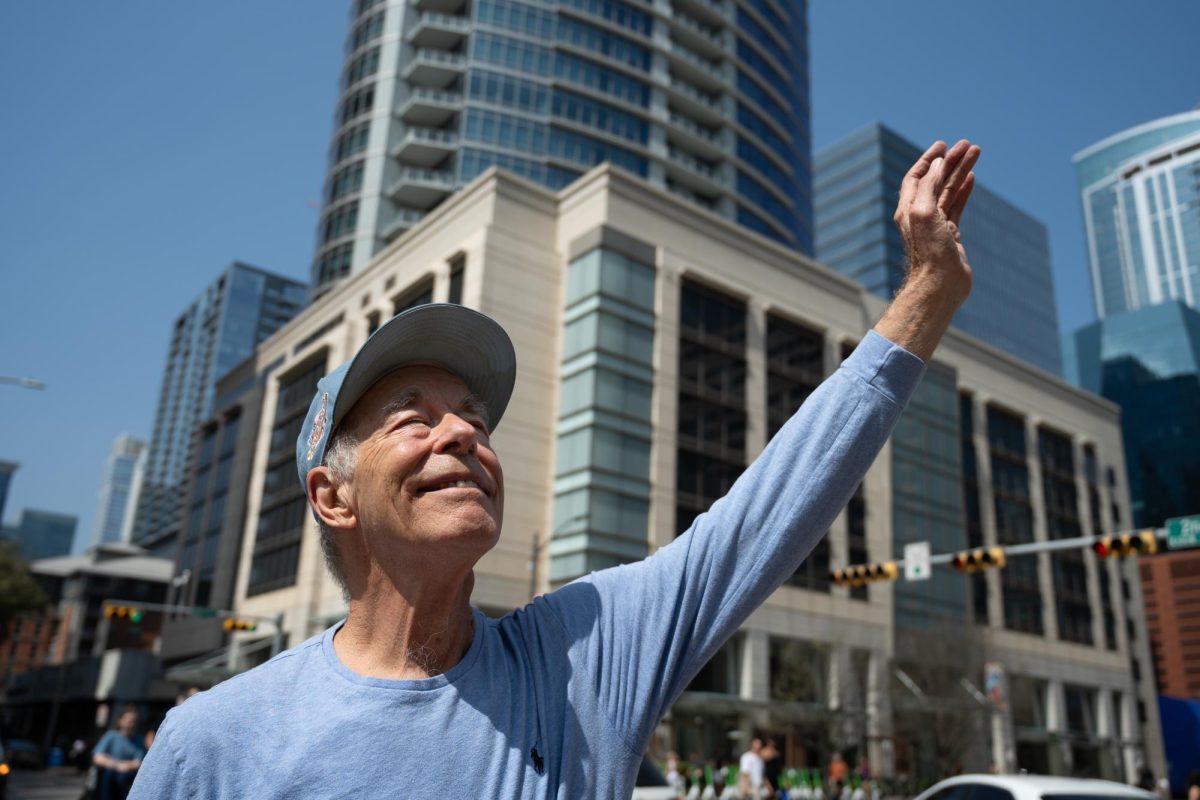When Hannah Moody was in eighth grade, she went to a conference with her church where she saw “Rough Cut,” an original documentary released in 2003 by Invisible Children, a social, political and global movement made up of hundreds of volunteers, students and supporters that make documentaries about war-affected children in east Africa and tour them around the world. The film shows the world that children are being kidnapped and turned into child soldiers every day.
“I have a lot of empathy,” said Moody, a communication studies junior. “It grabbed me, and I’ve been involved [with Invisible Children] ever since.”
Today Invisible Children will be screening its newest short film, “Tony,” put on by Kappa Delta and the Amnesty Club in the Student Activities Center auditorium for free in hopes of raising awareness of the ongoing war between the Lord’s Resistance Army and the government of Uganda. Joseph Kony’s resistance began under a spiritual movement and has since evolved into the abduction of children to serve in his army. The film serves as a call to action for those willing to help. After the screening, Collines Angwech, a former child soldier, will be share her story and advocate on behalf of the people in the Democratic Republic of Congo, Central African Republic and Sudan.
“There are so many atrocities we just don’t even know about,” said journalism freshman Saumya Wali. “Just because I was born into a more fortunate situation and someone else was born into a lesser one, [it] doesn’t mean it’s not my concern. We have to realize not everyone has the same great opportunities.”
Invisible Children began in the spring of 2003 when founders Jason Russell, Laren Poole and Bobby Bailey traveled to Africa and discovered over two decades worth of war in northern Uganda. While continuing efforts to stop Joseph Kony’s war and use of child soldiers, Invisible Children has established many economic and educational initiatives, including village savings and loans, establishing a mentor program and creating a bracelet campaign.
“Tony, the star, says to the founders, ‘Don’t forget about me. People come all the time and don’t come back,’” Wali said. “We have the power to touch lives even in small ways. Everything makes a difference.”
The war in northern Uganda between the Lord’s Resistance Army and the government of Uganda has been going on for the last 25 years. The army, a rebel group founded in 1986 led by Joseph Kony, has been responsible for the abduction of over 30,000 children in northern Uganda, the Democratic Republic of Congo, Sudan and the Central African Republic.
“Just because it’s not happening in the U.S. doesn’t mean it doesn’t deserve our attention,” Moody said. “There’s lots of times we’re just bombarded with horrible things and we just tune them out, but people are being tortured and [children] are being abducted. We should care about other human beings.”
However, with the advent of the LRA Crisis Tracker, a real-time mapping platform and data collection system created to illustrate the path of the Lord’s Resistance Army, the number of civilian deaths has begun to decrease.
“It’s beginning to weaken,” said international relations freshman Caroline Thomas. “They’re making these yellow cards in different African languages and hanging them up across the jungle, so everyday people are learning more and more about the LRA.”
This year, Invisible Children’s goals are to raise enough money to set up radio towers in at-risk areas of Africa that would serve to alert and monitor civilians vulnerable to the army.
“Many times, there’s no cell service and villages can’t communicate with other villages,” Moody said. “We want to help them establish communication so that it’s no longer an invisible war.”
Invisible Children also plans to build rehabilitation centers to provide psychosocial support, safety and counseling for the former child soldiers while also educating the community of the risks.
To make this possible, Moody hopes to fill the SAC auditorium to capacity tonight and even purchased a tan sheet, so once the seats fill up. “Tony” can still be projected outside and no one will be turned down from the event. Her goal, and that of the others involved, is to not only fill the auditorium but also to raise the most money for the protection plan and create change.
“It’s a youth movement. It’s giving youth a voice,” Moody said. “It’s to see something that’s wrong and change it.”
Printed on Tuesday, November 15, 2011 as: Shedding light on Ugandan atrocities



